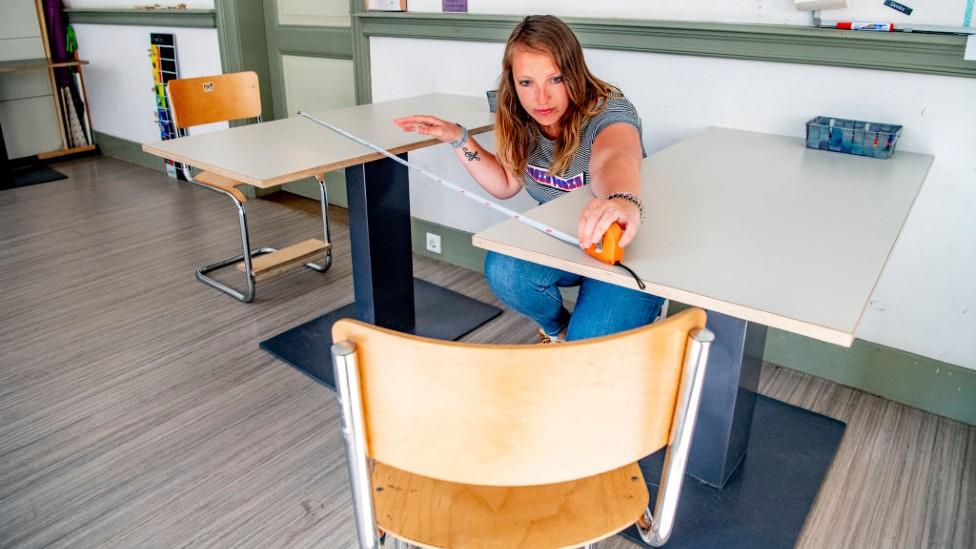Coronavirus: NI pupils to be taught in protective 'bubbles'
- Published
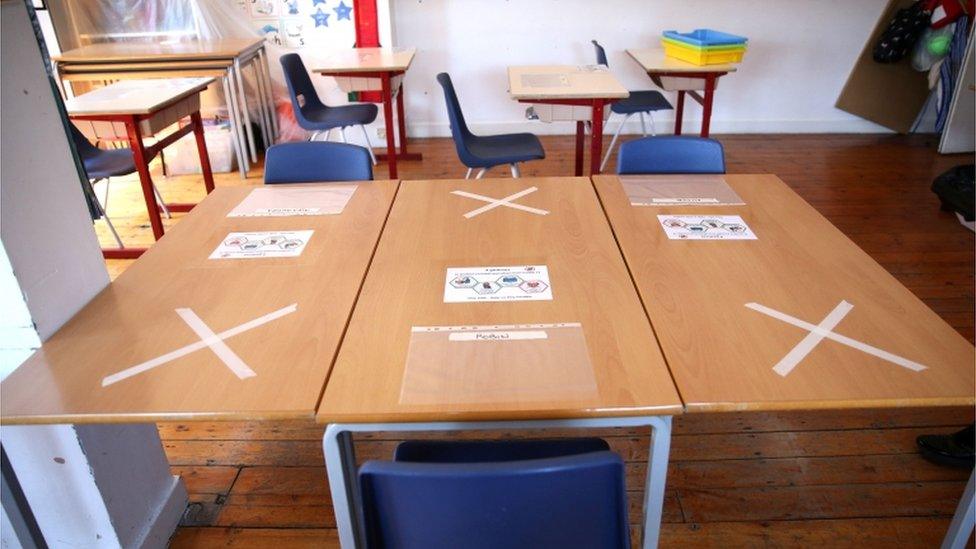
Children would remain in the same small classes every day to reduce mixing with others
Many pupils are set to be taught in small group "pods" or "bubbles" when schools reopen in Northern Ireland.
Children would remain in the same small classes every day they are in school to reduce mixing with others.
It is one of the measures proposed by a Department of Education (DE) working group, BBC News NI understands.
Education Minister Peter Weir wants pupils in primary seven and about to sit GCSEs and A-levels to return to school on 17 August.
However Mr Weir has told some principals that school holidays could be altered later in the 2020-21 academic year to ensure contractual agreements with teachers are not broken if schools open for some pupils on 17 August.
Under a previous agreement between the department and unions, teachers are required to be available to work in school for 195 days a year.
Departmental officials, school leaders and unions are drawing up detailed guidance for how schools can reopen for all pupils as part of the Education Restart programme.
Their guidance for schools is expected to be published shortly.
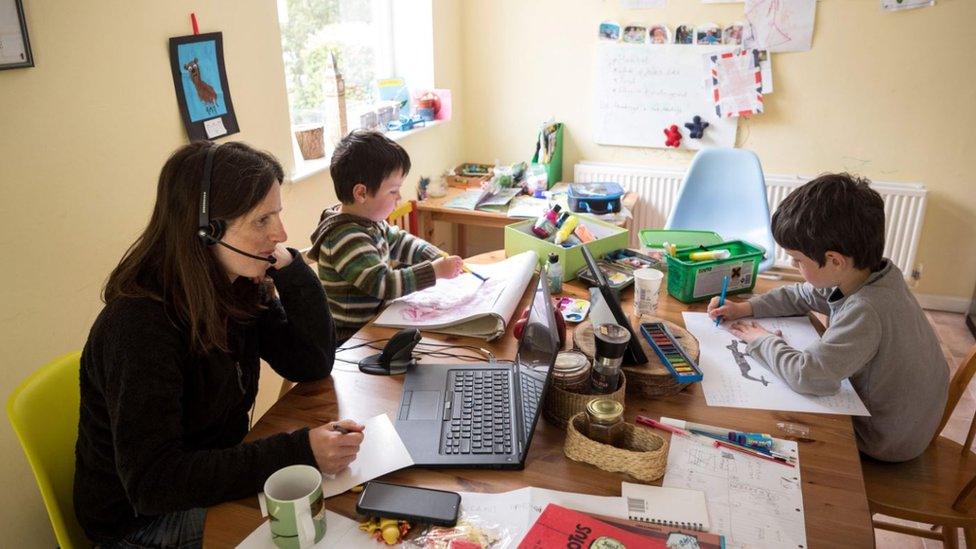
From August, teaching will be split between the classroom and remote learning
The planned return of year 7, year 12 and year 14 in August is expected to be followed by a "phased" return of other year groups from September.
BBC News NI understands that draft guidance includes plans for pupils up to year 10 (3rd form) to be taught in consistent small groups when they initially return to school.
These bubbles or pods could be up to 50% of an existing class size and would limit interaction with other pupils.
The same group of children would stay together in school each day, throughout the day, as far as possible including at break and lunch times.
The approach is similar to other countries.
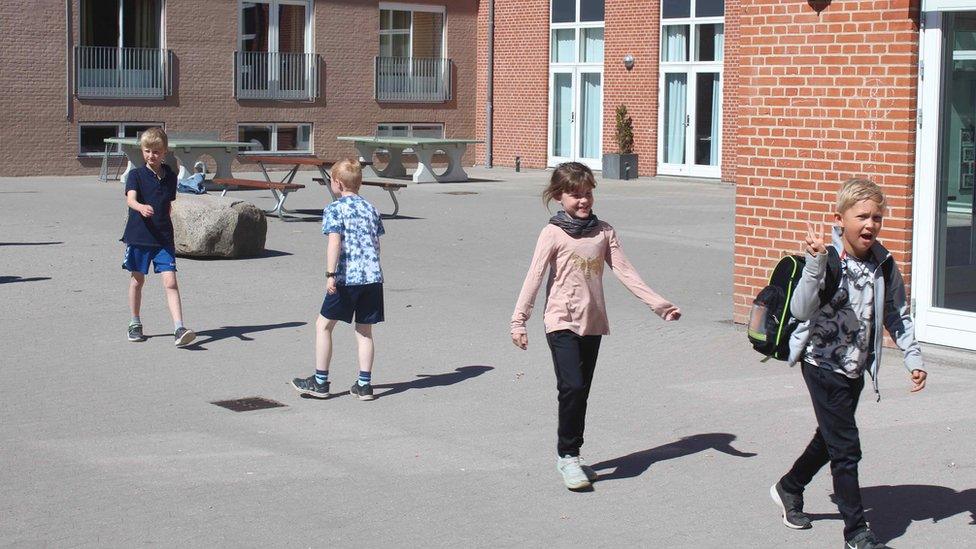
Schools in Denmark have reopened using the protective bubble system
The Northern Ireland guidance is likely to be flexible enough to allow some schools to accommodate more pupils if it is safe to do so and they could maintain appropriate social distancing.
Individual schools are also likely to be able make their own decisions about which year groups attend on particular days.
While most primary pupils, for instance, will only attend for 40% of the week, schools could also be allowed to decide how they would timetable that.
Issue of school transport
Mr Weir had previously told a webinar with the National Association of Head Teachers that staff who are unable to be in school as they are shielding could take on work arranging remote learning.
More detail on arrangements for vulnerable staff and children will be included in the guidance.
However, principals on the working group are understood to have pointed out that expectations around remote learning will have to be realistic if most staff are teaching in school.
Draft health and safety risk assessments for all schools are expected to provided by the Education Authority.
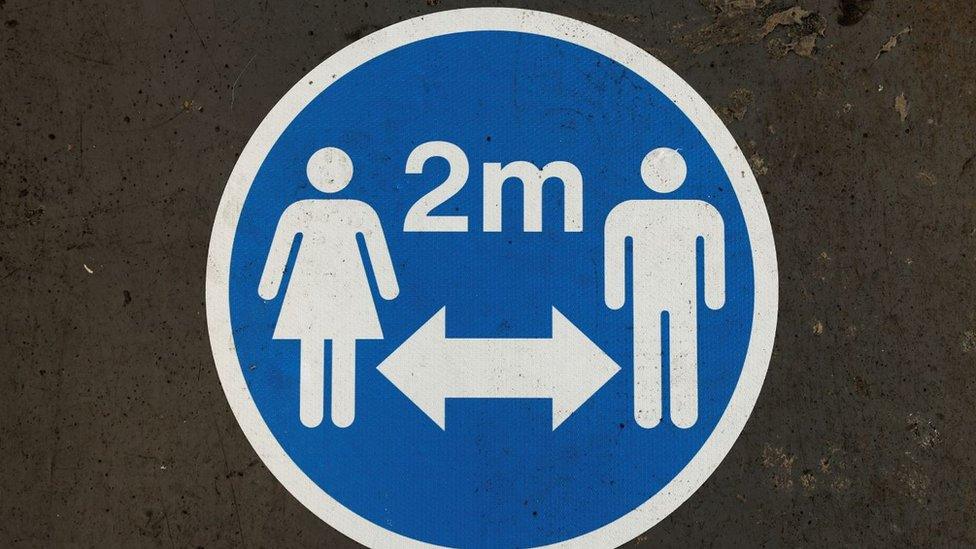
If the existing 2m social-distancing guidance was reduced that could alter the measures in schools
The scientific advice behind the schools guidance is also expected to be published.
Arrangements for school transport are understood to have been one of the most difficult areas the working group has had to consider.
About 80,000 pupils in Northern Ireland are currently entitled to free school transport - a quarter of the school population.
The Department of Education guidance will be extensive, but it may change again before the planned start of the new school year in September.
BBC News NI understands that is because the Education Restart working group plans to continue to meet over the summer.
If the existing 2m social distancing guidance was reduced, for instance, that could also alter recommended health and safety measures in schools.

40,000 DEATHS: Could they have been prevented?
LOOK-UP TOOL: How many cases in your area?
EUROPE LOCKDOWN: How is it being lifted?
TWO METRES: Could less than 2m work?
THE R NUMBER: What it means and why it matters

- Published5 June 2020

- Published12 May 2020
